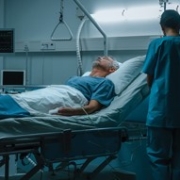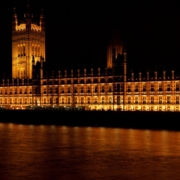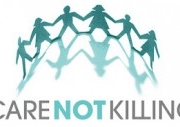Conflicted, but not neutral
 The Royal College of Physicians (RCP) moved its public stance on assisted suicide from opposition to neutrality in March 2019. Last weekend the Royal College of General Practitioners (RCGP) launched a poll of its members, and over the coming months, the British Medical Association (BMA) will poll their members on doing the same. In little over a year, the three most influential British medical bodies might drop their opposition to assisted suicide, paving the way for attempts in Parliament to change the law.
The Royal College of Physicians (RCP) moved its public stance on assisted suicide from opposition to neutrality in March 2019. Last weekend the Royal College of General Practitioners (RCGP) launched a poll of its members, and over the coming months, the British Medical Association (BMA) will poll their members on doing the same. In little over a year, the three most influential British medical bodies might drop their opposition to assisted suicide, paving the way for attempts in Parliament to change the law.
Doctors are undeniably divided on this issue. In the RCP poll, carried out in early 2019, 43.4% of respondents thought that the College should maintain opposition to assisted dying; 31.6% though the College should support legal change and 25% thought the College should be neutral.
So, isn’t neutrality a perfectly reasonable position for medical bodies to assume on a controversial issue which divides their members?
There are several reasons for thinking otherwise. Neutrality is entirely appropriate for parties officially designated as arbiters – a High Court judge, the Chair of a debate, the referee of a football match. But neither the RCP, the RCGP nor the BMA are arbiters in this debate: they are active participants, with responsibilities to represent their members and protect their patients.
Historically, the concept of neutrality for non-arbiters has been mired in complexity and ambiguity. A failure to speak out can look very much like complicity with one side or other. American neutrality in the second world war failed to make a distinction between the British and French democracies and the expansionist fascism of Nazi Germany; Swiss neutrality permitted financial support of the German war effort and provided a safe haven for looted Nazi treasures.
There are three reasons why it is particularly inappropriate for bodies like the RCP, the RCGP and the BMA to retreat to neutrality over assisted dying.
- Doctors aren’t neutral on assisted dying
Every time doctors are surveyed about their views on assisted dying, although a significant minority indicate support, invariably the biggest group, and usually the majority, are opposed. These included 77% of GPs, 82% of palliative medicine doctors and 43.4% of physicians. In his 1997 landslide general election victory, Tony Blair won a near-identical 43.2% of the popular vote: overall majorities are almost impossible to achieve where more than two options exist.Neutrality is not a happy compromise, the middle point on a line between supporting and opposing assisted suicide. Rather, it is the third point of a triangle, representing disengagement with the debate and a handing over of responsibility for this aspect of medical practice to politicians. The fact that only 25% supported this approach in the RCP survey indicates that whatever doctors might feel about assisted dying, most aren’t neutral.
- Neutrality encourages a change in the law
Perhaps a medical Royal College newly established in 2019 would decide not to adopt a position on assisted suicide. Such a decision would not be newsworthy. By comparison, when the RCP moved from opposition to neutrality on the issue, headlines proclaimed that the College had ‘dropped its opposition to legal change’.One group of writers have concluded that ‘Neutrality is not neutral. To change from opposition to neutrality represents a substantive shift in a professional, ethical, and political position, declaring a policy no longer morally unacceptable; the political effect is to give it a green light. Logically, neutrality implies, “We are not opposed.”’ [Sulmasy, D.P., Finlay, I., Fitzgerald, F. et al. J GEN INTERN MED (2018) 33: 1394]The gap between the Canadian Medical Association adopting a position of neutrality on assisted suicide and the Canadian parliament voting to legalise it was a mere three years. Canadian family physician Williard Johnson writes: ‘Few Canada doctors foresaw that “going neutral” would guarantee the arrival of euthanasia or that promises of a shot in the arm for palliative care would be forgotten. Even fewer realised they would have no option but cooperate with providing death on demand. It has become all too easy to end patients’ lives. Learn from our mistakes. ‘ [JOHNSTON, W.P. BMJ 2019;364:l412]
- Neutrality silences critical arguments about safety and provision of care
Doctors have responsibilities that go beyond simply treating the individual patient in front of them. Where doctors perceive health threats as a result of changes in society, they have a duty to speak out – exemplified by recent RCP, RCGP and BMA warnings about issues as diverse as obesity, air pollution, economic inequality and a no-deal Brexit.Legalisation of assisted suicide would perhaps mark the biggest change in the ethical and legal regulation of the medical profession ever, with profound consequences:
- What might happen to the trust patients place in the medical profession if they know that their doctor may act to bring about their death?
- Can we really be certain of our ability to detect mental health problems, cognitive impairment and (most worryingly) coercion? Each may, if wrongly assessed, mean that an assisted suicide could actually be an unlawful killing.
- Can we be sure that pressures on healthcare budgets and personal inheritances won’t pressurise patients into requesting assisted suicide (cheap) rather than continuing care (expensive)?
- Don’t we risk dumping onto elderly, frail and otherwise vulnerable people the harsh burden of deciding whether to take their life? Don’t we risk sending the message to these people that their lives matter less than the lives of others?
- Isn’t there a real risk that hospices and palliative care services would be damaged by having to provide assisted suicide, when perhaps it is strongly opposed by their staff?
- Do we really believe that the rights of doctors to conscientiously object to involvement with assisted suicide will be properly protected in the face of increasing pressures to facilitate the delivery of what is likely to become a ‘core service’?
Where unanswered threats to patient safety and provision of healthcare services exist, medical institutions like the RCP, RCGP and BMA have a duty to speak out. This isn’t simply about individual moral judgements: it’s about keeping people safe. And we can’t be neutral about safety.
David Randall is a registrar in renal medicine












Leave a Reply
Want to join the discussion?Feel free to contribute!